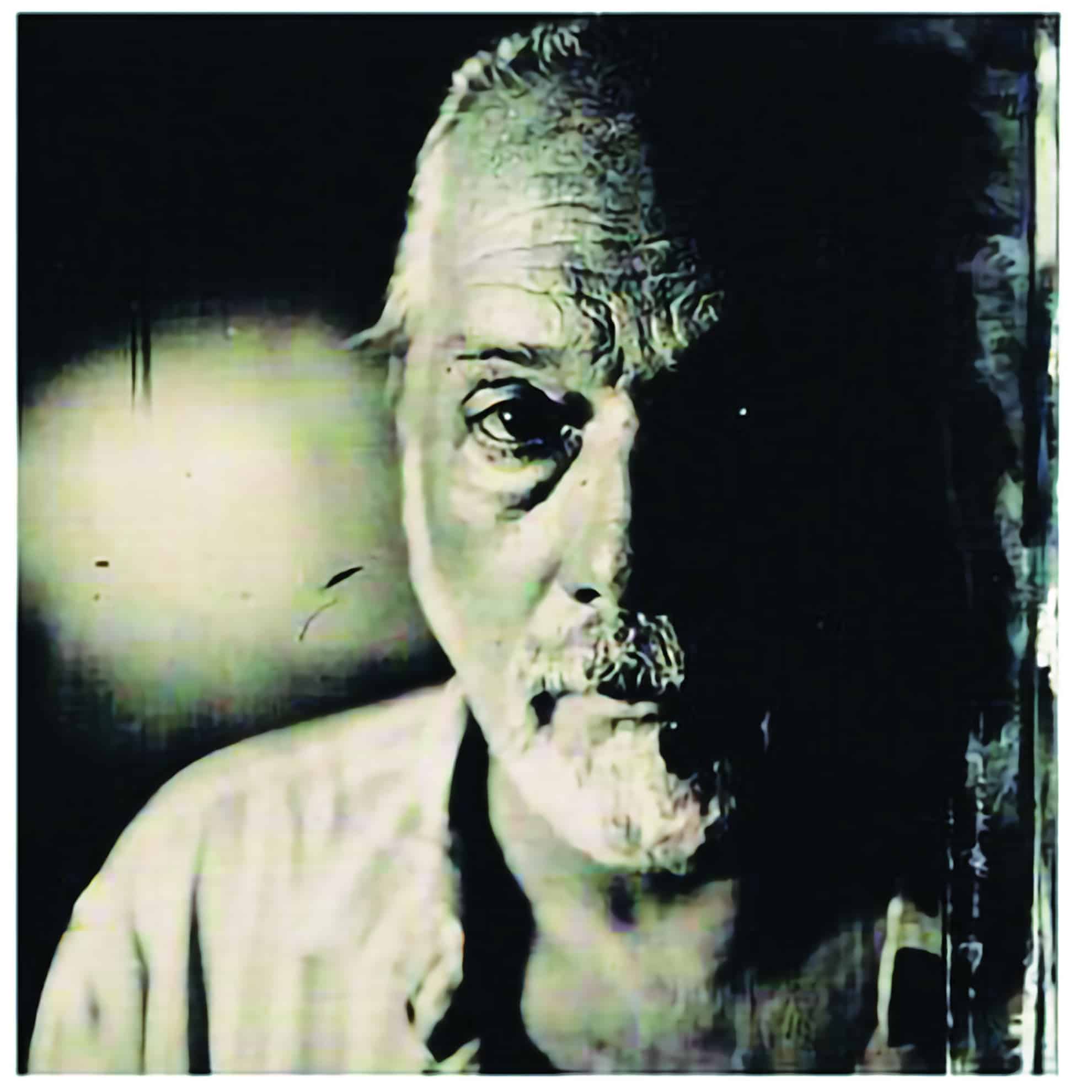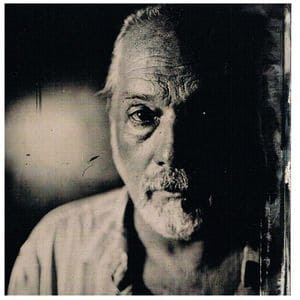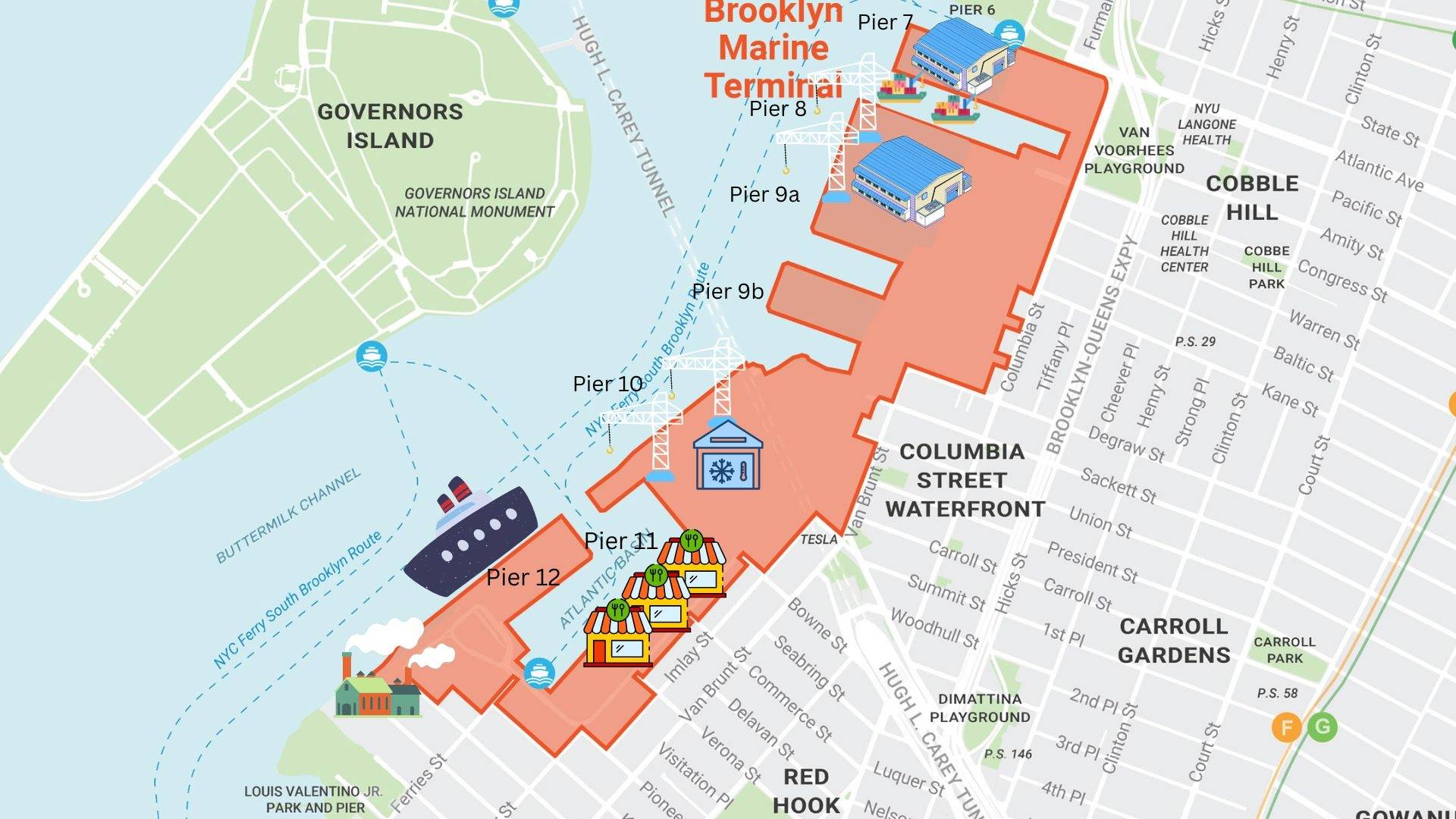Donald O’Finn: Artist, Rebel, and Proprietor of Freddy’s Bar
The original Freddy’s Bar is one of the great, lost places in Brooklyn. Once a rumored to be a speakeasy during prohibition, it later became a key, cultural hub and ground zero for the resistance to the assault on Brooklyn by real estate developers.
The dark front room featured an outstanding wooden bar, red pleather booths, cheap drinks, and a fish tank full of frogs. In the dusty, cobwebbed corners one could find humorous oddities like cans of “Spotted Dick”, a British culinary monstrosity that looks as appealing as it sounds. A bag of Shark Chum flanked a TV whose strange images assaulted the senses. The graffitied walls of the bathroom contained a collective wisdom as deep as those of CBGB’s. In the subterranean backroom, there were concerts, poetry readings, art exhibits, and above all a space where creatives could connect.
The man at the helm was and is Donald O’Finn, a brilliant artist whose surreal video montages illuminate the inner space of the bar and the brain. Donald’s work is comprised of found footage spliced into bizarre mashups guaranteed to catch you off guard. One minute you’re enjoying your drink, the next your attention is pulled towards T.V. monitors strategically placed throughout the bar.
O’Finn was born and raised in San Francisco. He enlisted in the army and later took advantage of the G.I. Bill. He landed a scholarship at the San Francisco Art Institute and earned an M.F.A. in painting. After graduating, he came to New York expecting to “take it by storm”, didn’t, and survived by designing patches, particularly popular with inmates.
In his own words, O’Finn had always been a “hard core bar guy and a drinker.” Missing the old man bars of San Francisco “with Sinatra on the jukebox” he dreamed of opening a saloon. He took a job at the now defunct O’Connors on 5th Avenue in Park Slope. While tending bar, he noticed that many of the old timers started to die off and become replaced by artists and writers. But Patrick the proprietor didn’t like this crowd of new bohemians and threw them out. Concurrently, O’Finn was asked to work in a bar formerly popular with Daily News reporters, now “a dangerous place filled with cops and criminals.” It’s worth remembering this was Park Slope in the early 90’s where the now charmingly gentrified 5th Avenue was home to bodegas with two-inch-thick plexiglass surrounding a cash register that sold more “crack than milk” recalls O’Finn.
While contemplating what to call it, they received a glowing review dubbing the bar “Freddy’s” after its then owner. The name stuck. Determined to provide a space for his talented friends, O’Finn began booking the backroom. “I’ve always attracted the artists and creative types. I love what they do, and I want to support it.”
This approach added up to a winning formula and O’Finn was able to expand his core of people. “Our regulars are just a touch special. Everybody’s a bit damaged. These are insanely talented people who always fell just short of making it. There’s a bit of tragedy to everybody, which means that they’re hilariously funny and witty. It’s like a dark, dark Cheers.”
In terms of the offbeat vibe, O’Finn says, “I can’t help it; I’m an artist. So, anything I do is going to be different because I’m a little bit different. And I’m obsessive about it. It seems to work. I’ve taken three failing bars and turned them into critically acclaimed best bars.”
In fact, the Sun has lauded Freddy’s as “one of Brooklyn’s most important cultural institutions.” Examples of excellence include “The Cringe”, a reading series where audience members are invited to share painful memories from teenage diaries, which has spawned a national tour and several books by the founder, and “Opera on Tap”, a night where professional opera singers belt out arias and are often joined on choruses by audience members. “You get a room like you’ve never seen in your life!” raves O’Finn. “There are so many talented people in New York. I just had an opportunity to let them show that. It just goes to show, you give people a chance, a little space and support, and amazing things can happen,” he adds.
If the success of such events proves the validity of his philosophy of creating community and having a space where people can “let go” in order to realize their creative vision, Freddy’s also works hard to maintain a cool crowd. “We have a rule. If someone’s being an asshole, we get them the ‘F’ out,” states O’Finn.
Freddy’s also served as the focal point for the resistance to the development project that was the Barclay’s Center. The battle lasted for well over seven years. “It was terrifying and difficult,” says O’Finn.
Together with blocks of beautiful brownstones, Freddy’s lay directly in the footprint of the proposed development, and the community looked to O’Finn to stop it. “We had people who had lived here for generations. Forest City Ratner needed to throw or buy out the neighborhood. They were then able to call it ‘blighted’ and get the go ahead for demolition,” recalls O’Finn emotionally. “I knew we might win the battle but not the war. But I also knew that others after us might learn from the debacle. Eminent Domain is an ongoing issue for New York.”
After nearly a decade of resistance, Freddy’s was finally forced to close and make way for the behemoth Barclay’s Center, an unsurprising fiasco. Thankfully, Freddy’s reopened in South Slope and continues today as a cutting-edge cultural venue including its original bar, fish tank, and other random items of weirdness. With events happening every night of the week, Freddy’s lives on as a distinct destination for cutting edge performances. Find out more at www.freddysbar.com.











